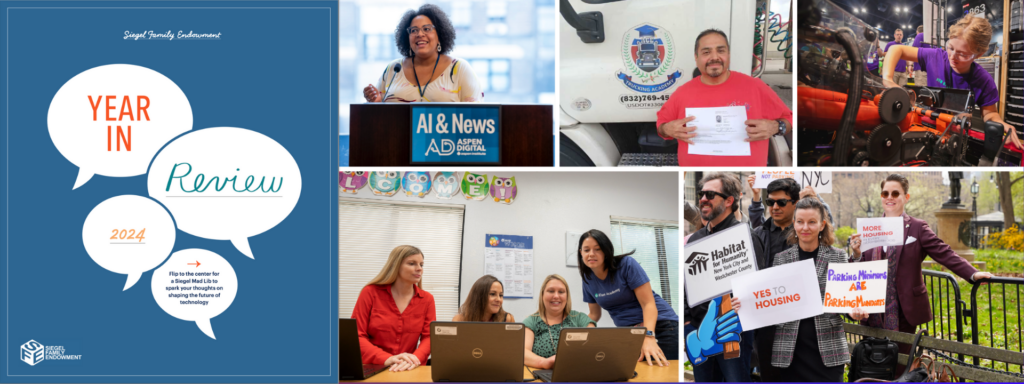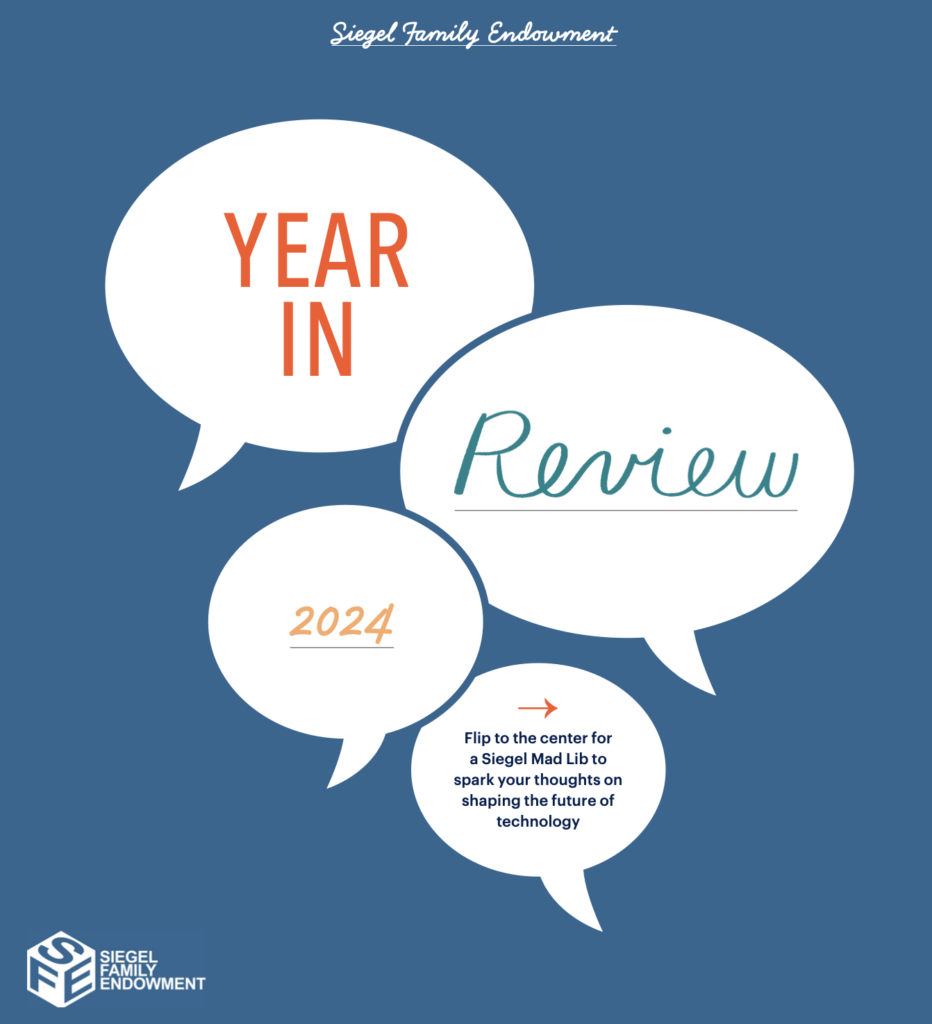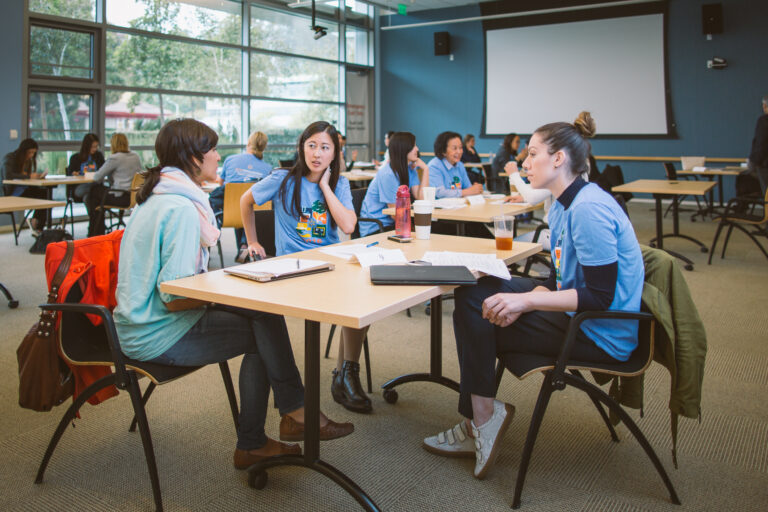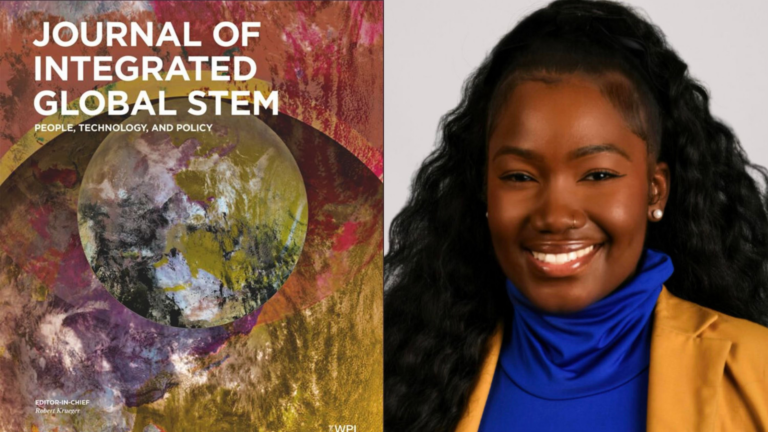
Dear Friends and Partners,
As we reflect on the past year, it’s clear that artificial intelligence has dominated discussions across various domains. What surprises us, however, is not the volume of conversation but rather its lack of nuance. Having navigated many cycles of technological development, we recognize the urgent need to move beyond the simplistic “gloom vs. doom” narrative. Instead, we must critically examine what these technologies can do, what they cannot, and—most importantly—what we truly need from them.
To answer these questions, we’ve worked to build a community around public interest technology. This year, we hosted Tech Together, a gathering that brought together 200 funders, mission-aligned investors, and thought leaders to shape the future of the global public interest technology movement.
David opened the event with a quote by George Bernard Shaw: “The reasonable man adapts himself to the world; the unreasonable one persists in trying to adapt the world to himself. Therefore, all progress depends on the unreasonable man.”
The time has come for us to be unreasonable.
We must challenge the norms we encounter, resist the temptation to accept the status quo that overlooks the potential negative impacts on people and the planet, and advocate for a tech-driven world that prioritizes our values. What does this look like in practice?
Being unreasonable means leading with values
At the heart of meaningful change is the courage to lead with our values, particularly when faced with complex decisions or competing priorities. Over the past year, we’ve reflected on how personal values align with public processes and institutional goals, especially in an era where technology increasingly shapes our lives. The challenge is not just identifying what is important to us but translating these values into tangible actions that guide technology’s development and deployment. This requires a shift in how we think about technology—not as a neutral tool but as a reflection of our collective priorities.
All technology carries values—whether or not we are conscious of them. From the algorithms that drive our daily interactions to the platforms we engage with, every piece of technology is built on assumptions about what matters most. If we don’t consciously the name values at the tables where technology and policy are shaped, we risk reinforcing harmful biases, exclusionary practices, or systems that perpetuate injustice. Technology is never a blank slate—it is an expression of the choices we make, the assumptions we hold, and the outcomes we deem important.
To drive positive change, technology must be designed with intentionality, grounded in values that prioritize people, planet, and society at large. This means advocating for technology that serves the public good, amplifies marginalized voices, and aligns with justice, fairness, and sustainability. It also means acknowledging the tensions between competing values—privacy and security, innovation and regulation—and using these tensions as opportunities to refine our technological frameworks. In this sense, being unreasonable is about insisting that technology be a force for good, holding it accountable to the values that matter.
Being unreasonable means asking better questions
In an increasingly polarized world, nuance is often dismissed as antagonistic or irrelevant. Yet, the world is far more complex than the simple dichotomies of black vs. white, left vs. right, or Mac vs. PC. Nuance is the key to finding the most effective levers to target systems change. And it begins with asking better questions.
Questions are powerful tools to challenge the conventional “reasonableness” of the status quo. Curiosity, coupled with humility, can be far more effective than the reflex to persuade or defend. By approaching debates with a mindset to listen and learn, we open doors to unexpected breakthroughs whether in science, policy, social innovation, or around the kitchen table. This approach fosters a deeper understanding of the world, allowing us to refine our mental models of what can change and what cannot. Ultimately, it is this nuanced perspective that guides us toward effective, sustainable solutions.
At first glance, nuanced perspectives might seem to seek compromise or be at odds with prevailing narratives. Consider, for example, the notion that we do want bias in our data—a belief that on its surface runs counter to the myriad of efforts seeking to mitigate harm. But dig deeper, and you’ll see that what we seek are positive biases—those that are pro-social, pro-environmental, and that tip the scales toward equity and justice. It’s only by embracing these complexities that we can create solutions that are truly transformative.
Being unreasonable means collective action
Social change work is inherently complex, messy, and slow-moving, but it is also deeply necessary. The pursuit of generational systems change, the kind that reshapes institutions, cultures, and power structures, cannot be measured in traditional ways. Quick fixes and linear progress are rare in this space, and it’s easy to be discouraged by the lack of immediate, tangible outcomes.
However, when we succeed in fostering deep, collaborative partnerships—leaning on each other’s intellectual strengths, lived experiences, and diverse perspectives—the process becomes less about individual achievement and more about collective transformation. Success is not defined by who gets there first, but by the collective strength of all those working together to create a more just, equitable, and sustainable world.
Through shared effort, we recognize the value of building on the work of others, asking questions, and refining our approaches based on what has come before us. By grounding our efforts in collaboration, we ensure that progress is not only sustained but accelerated, with a greater chance of creating lasting impact for future generations. Social change is never truly “done”; it is always a work in progress—becoming more inclusive, impactful, and transformative over time.
A call to unreason
We invite you to join us in becoming “unreasonable.” If becoming unreasonable means challenging the conventional, questioning assumptions, and refusing to accept things simply because they’ve always been that way, then we believe it is not only reasonable—it is essential to drive real, lasting change.
Thank you for your continued support as we work together to create a future we can all be proud of.
With best wishes,
Katy Knight and David Siegel
Siegel’s 2024 Year in Review
Check out our annual report for more insights and a tech-driven activity here.






